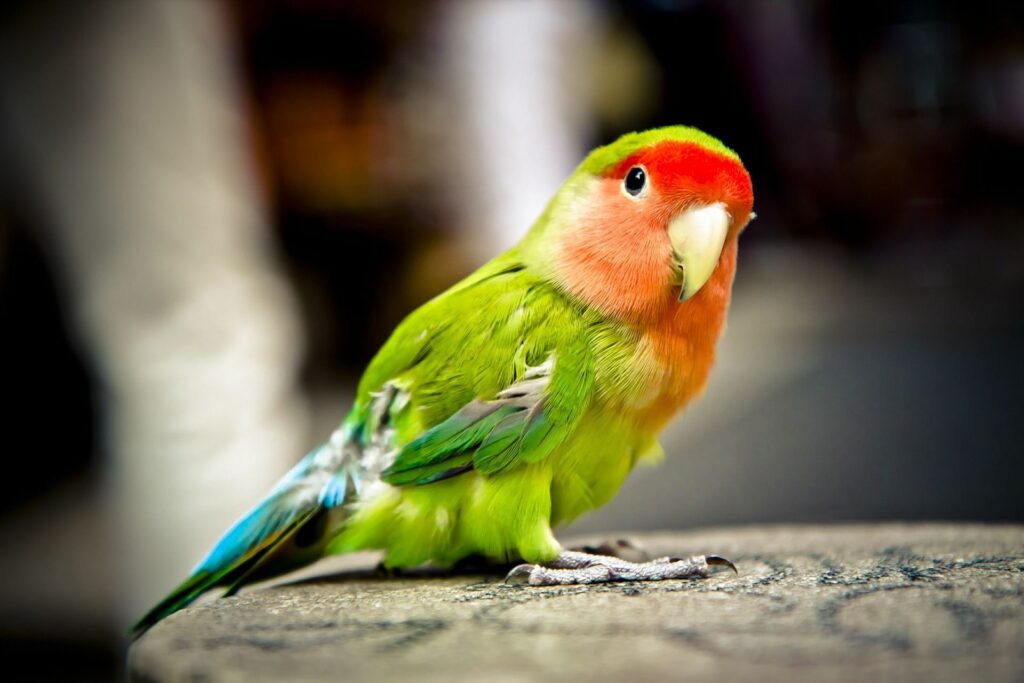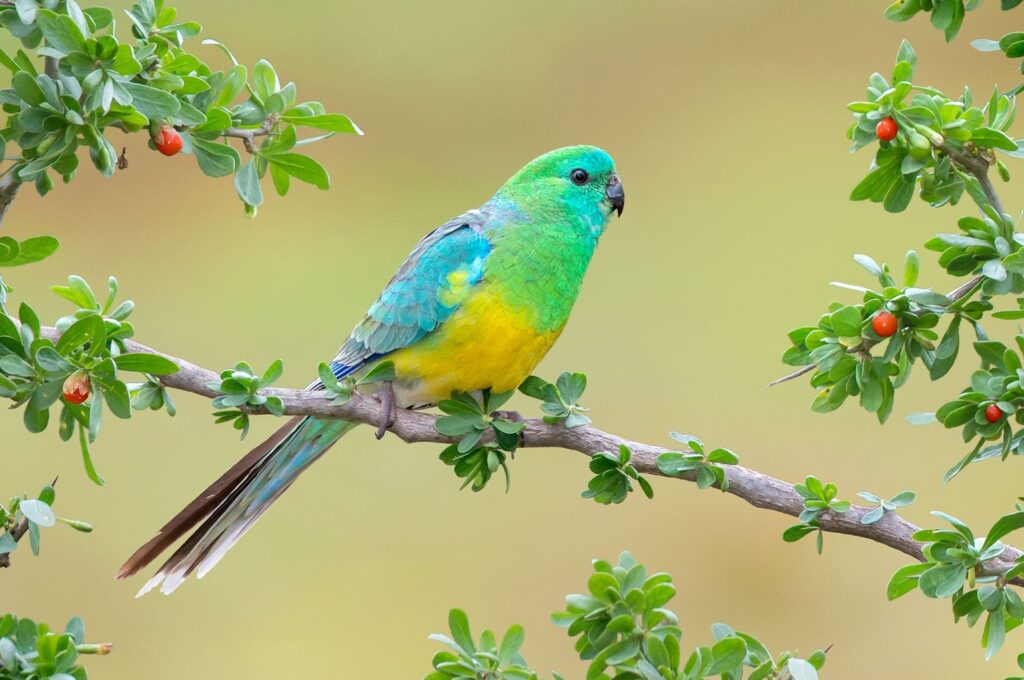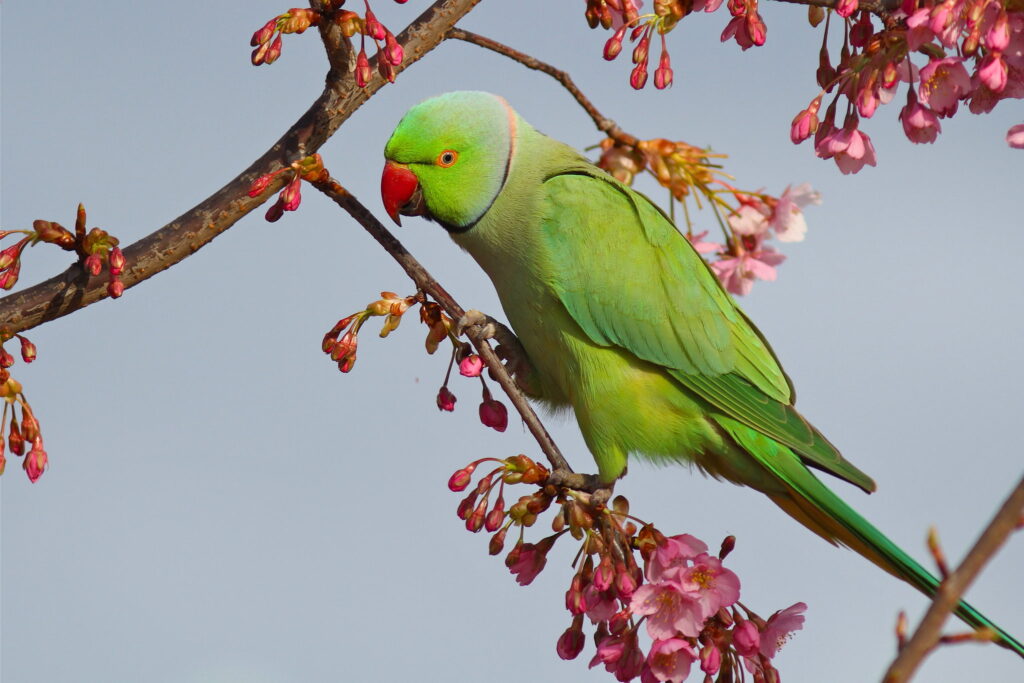Table of Contents
ToggleIntroduction

From the many fruits that grace our tables, cherry is a delightful treat and a source of fascination for parrot lovers. Can Parrots Have Cherries? Many caregivers have issues with whether these scarlet gems can be on the menu for our avian friends. Parrots’ diverse dietary needs include carefully selecting fruits, vegetables, and seeds. With their juicy sweetness and nutrient-dense nutritional profile, Cherries entices us to investigate the potential benefits and threats they bring to our feathery companions.
Potential Benefits
With their burst of color and flavor, Cherries extend beyond mere gustatory delight; they bring a host of potential benefits to the avian realm. Let’s delve into the nutritional advantages cherries can offer our feathered companions when incorporated in moderation.
Antioxidant Properties: Cherries, both sweet and tart, are laden with antioxidants, compounds that play a crucial role in neutralizing free radicals within the body. These free radicals, byproducts of metabolism, can lead to cellular damage over time. The antioxidants in cherries, such as anthocyanins, quercetin, and vitamin C, act as defenders against oxidative stress. For parrots, this means enhanced immune system support, promoting resilience against diseases, and contributing to overall well-being.
Vitamin Content: Cherries emerge as miniature treasure troves of essential vitamins, making them valuable to a parrot’s diet. Vitamin C, an immune system booster, is abundant, aiding collagen formation and contributing to vibrant plumage. It vitamin A fosters healthy vision and skin, while vitamin K plays a role in blood clotting and bone metabolism. The harmonious blend of these vitamins in cherries contributes to the holistic health of our feathered companions.
Dietary Enrichment for Parrots: Variety is the spice of life, and the avian world is no exception. Introducing cherries into a parrot’s diet provides a welcomed change and a source of dietary enrichment. The natural sugars in cherries offer a flavorful alternative to processed treats, encouraging a diverse and balanced nutritional intake. Foraging for cherries also stimulates mental engagement, preventing boredom and promoting a more active and happy parrot.
Types Of Cherries

Cherries, those luscious globes of sweetness, come in various varieties, each with its unique flavor profile and nutritional composition. Understanding the distinctions between sweet and tart cherries is crucial when contemplating their inclusion in the diet of our feathered companions.
Sweet Cherries
Nutritional Content: Sweet cherries, renowned for their succulent taste and vibrant hue, pack a nutritional punch beyond their delectable flavor. Sweet cherries offer a wholesome blend of nutrients, rich in vitamins such as C, A, and K, as well as essential minerals like potassium and antioxidants. These ruby gems also contain natural sugars, including fructose, providing a quick energy boost.
Potential Benefits for Parrots: When contemplating the inclusion of sweet cherries in a parrot’s diet, caretakers can rejoice in the potential health benefits. The antioxidants present in sweet cherries contribute to overall immune system support, while vitamins and minerals promote feather health, eye function, and bone development. The natural sugars can be a delightful treat, adding variety to the parrot’s diet.
Tart Cherries
Contrasting Nutritional Elements: Compared to their sweet counterparts, tart cherries boast a unique nutritional profile characterized by higher acidity and a distinctive tang. Sour cherries are renowned for their anthocyanin content, a type of antioxidant responsible for their deep red pigment. These cherries also contain vitamins C and A, albeit in different concentrations than sweet cherries.
Considerations for Parrot Health: While tart cherries share some nutritional benefits with their sweet counterparts, their higher acidity may be a consideration for parrot owners. Excessive acidity can lead to digestive issues in some birds. Careful moderation and observing individual parrot reactions are essential when introducing tart cherries to their diet. Additionally, removing pits is crucial, as they pose a choking hazard and may contain trace amounts of cyanide.
Risks And Considerations

While cherries offer a spectrum of potential benefits for our feathered companions, it is equally crucial for caretakers to be aware of potential risks and considerations associated with incorporating these delectable fruits into a parrot’s diet. Here, we address two primary areas of concern: pit-related issues and the sugar content in cherries.
Pit Concerns
Choking Hazards: One of the foremost concerns when offering cherries to parrots is the presence of pits. Cherries contain large, hard pits that pose a significant choking hazard. Parrots, in their enthusiastic consumption, may accidentally ingest these pits, leading to potential respiratory obstruction. Caretakers should always remove pits before offering cherries to their feathered friends.
Toxicity Potential: Beyond the choking risk, cherry pits contain compounds that, when crushed, release small amounts of cyanide. While the amount is typically minimal, and the body can detoxify small doses, caretakers should err on the side of caution. Regularly feeding cherries with pits may expose the parrot to cumulative levels of cyanide, presenting a potential toxicity risk. Removing pits before offering cherries is a crucial step in mitigating this concern.
Sugar Content
Moderation in Feeding: While cherries bring a natural sweetness to the avian palate, caretakers should be mindful of the sugar content. Excessive sugar intake can lead to health issues such as obesity diabetes and even impact the parrot’s behavior. Caretakers should exercise moderation when incorporating cherries into their parrot’s diet, ensuring that these fruity treats complement a well-balanced and varied nutritional intake.
Impact on Parrot Health: Parrots, like humans, can be susceptible to the adverse effects of a high-sugar diet. Regular consumption of sugary fruits, including cherries, may contribute to weight gain and potential dental problems. Caretakers should consider the overall sugar intake from the parrot’s diet and adjust the quantity of cherries accordingly. Monitoring the parrot’s weight and behavior can serve as valuable indicators of the impact of cherry consumption on its health.
Conclusion
From antioxidants that boost the immune system to a symphony of vitamins that improve general health, Cherry’s nutritional treasure trove entices parrot aficionados to provide these fruits as a delectable supplement to their companions’ diets. The dietary enrichment and mental stimulation provided by foraging for cherries emphasize the potential good impact on the health of our avian friends.
However, the richness of this fruity story is offset by the cautionary notes of pet-related hazards and sugar content. Caretakers must remain alert, carefully removing pits to avoid choking hazards and limiting cherry eating to avoid the pitfalls of excessive sugar consumption. The delicate balance is between appreciating the benefits and protecting against any harm.







